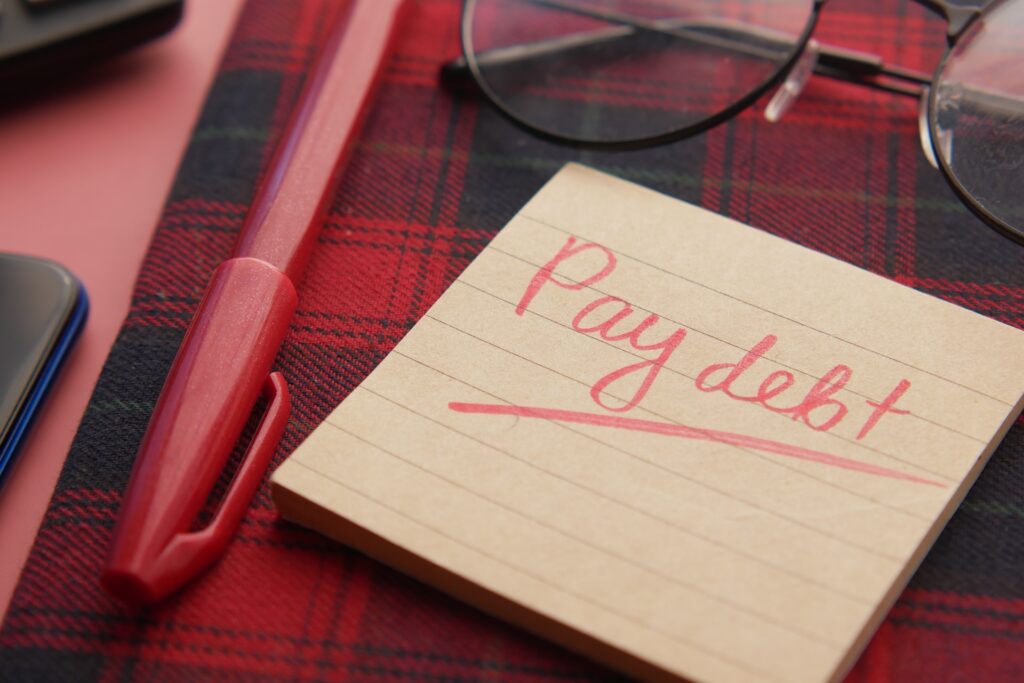Debt consolidation can be a lifeline for those going through multiple debt crises. At first glance, It seems to offer an easier way toward financial stability by consolidating various obligations into a single, more manageable payment. However, it raises the critical question; is debt consolidation bad for credit?
It merges multiple debts, such as credit card balances, personal loans, or other financial obligations, into a single new loan or repayment plan. In spite of that, The consolidation strategy lies a series of potential pitfalls such as hard inquiries, new accounts, default risk, overextending, etc that affect your credit scores.
In this article, we will highlight the negative consequences that how debt consolidation can lead to credit inquiries, and what could be other alternatives that will help to approach the financial decision with caution.
Table of Contents
What is Debt Consolidation?
Debt consolidation is a financial strategy that aims to simplify debt repayment by combining multiple debts into a single payment. This approach can make managing debts more manageable and potentially reduce interest rates.
Common methods for debt consolidation include balance transfers, where high-interest credit card balances are transferred to a single lower-interest card; personal loans, where you borrow a fixed amount to pay off various debts; and debt consolidation programs offered by credit counseling agencies, which negotiate with creditors on your behalf to create a structured repayment plan.
It’s essential to consider the terms, fees, and potential impact on credit before pursuing debt consolidation.
How Debt Consolidation Affects Your Credit
Debt consolidation, while it may seem like a promising solution to manage multiple debts, can have negative consequences for your credit. Here are the reasons why debt consolidation can be bad for your credit:

1. Multiple Inquiries Lowers Credit
When you pursue debt consolidation, lenders typically perform a hard credit inquiry to assess your creditworthiness. Multiple inquiries in a short period can lower your credit score.
2. Opening New Accounts and Temporary Dip in Credit Score
As part of debt consolidation, you may close some of your old credit accounts, reducing your available credit and negatively impacting your credit history length.
You may need to open a new credit account, such as a personal loan or a balance transfer credit card. This new account lowers the average age of your credit history, which negatively impacts your credit score. Thus, it can cause a temporary dip in your credit score before it starts to improve, which may be misleading and frustrating.
3. Credit Utilization Ratio
If you consolidate debt by transferring balances to a single credit card or opening a new loan, your credit utilization ratio may be affected. High credit utilization can lower your credit score.
4. Default Risk
It may create a false sense of financial relief, leading to a risk of default if you don’t address the underlying spending and budgeting issues. So, Defaults significantly damage your credit score.
5. Overextending
If you don’t address the root cause of your debt accumulation, there’s a risk of taking on more debt, which increases your overall balances, and potentially missing payments – all of which harm your credit.
6. Mismanagement and Late Payments
Even with a consolidated debt, if you continue to mismanage your finances or make late payments, your credit score will suffer.
The impact on your credit score can be long-term, making it harder to secure new credit in the future and potentially leading to higher interest rates when you do.
Other Alternatives of Debt Consolidation
Debt consolidation might not be the best solution for everyone. Exploring alternatives like credit counseling, financial education, creating a budget, or self-imposed debt repayment strategies may have fewer negative consequences on your credit.
1. Balance Transfer Credit Card
Balance transfer cards allow you to move high-interest debt to a card with a lower or 0% introductory interest rate. It is better than debt consolidation as it can save on interest, but be cautious of fees and ensure to pay off the balance before the introductory period ends.
2. Credit Counseling
Credit counseling agencies help you create a budget and negotiate with creditors for lower interest rates and waived fees. It’s better choice than debt consolidation as it tackles financial habits, educates, and can result in reduced payments, without the risk of new loans.
3. Bankruptcy
A last resort, bankruptcy erases most debts but severely damages your credit. While it provides a fresh start, it’s only better than debt consolidation when facing insurmountable debt, as it has long-lasting credit consequences.
4. Creating a Budget
Budgeting allocates funds to debt repayment, reduces spending, and builds a solid financial foundation. It’s better than debt consolidation as it addresses the root cause, teaches financial responsibility, and doesn’t involve new loans or accounts.
Related Articles,
How Long After Debt Settlement Can I Buy a House?
Can I Still Use My Credit Card After Debt Settlement?
How Much Does a Debt Settlement Lawyer Cost in the US?
Conclusion
In conclusion, while debt consolidation can provide short-term relief and simplification of payments, it’s essential to understand the potential negative impact on your credit. If not managed carefully and accompanied by a comprehensive plan to address the root causes of your debt, it may do more harm than good. Responsible financial management, understanding the pros and cons, and exploring alternative solutions are crucial to maintaining a healthy credit profile.






